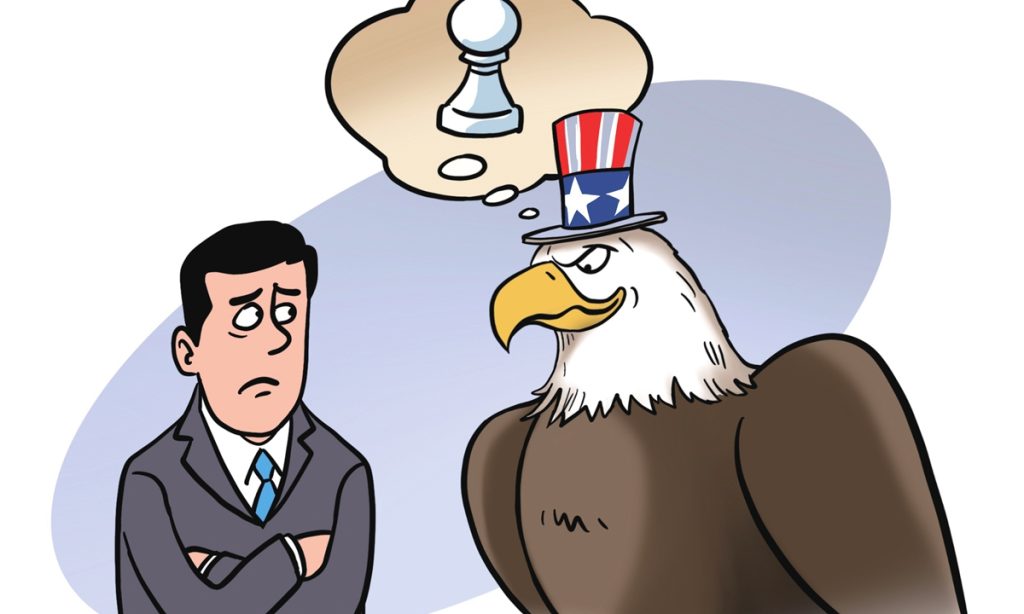Upgraded US-Vietnam relations a product of US' self-interest pursuit

During US President Joe Biden's recent visit to Vietnam, it was announced that the Vietnam-US relationship was upgraded to a comprehensive strategic partnership dedicated to "peace, cooperation and sustainable development," making the US Vietnam's fifth "comprehensive strategic partner."
The strengthening of Vietnam-US relations has been brewing for a long time. It seems grand in scale, but the essence of "peace, cooperation and sustainable development" needs to be carefully examined.
First, the US has always been quite enthusiastic about enhancing its relations with Vietnam, but not for the sake of "peace." During his visit, Biden expressed his "goodwill" not to let the consequences of the Vietnam War influence their bilateral relations, pointing out that the two peoples have overcome the "bitter past" together. However, it is worth questioning whether Washington can truly reflect on history.
In fact, through Biden's trip, Washington attempted to induce Vietnam to play a greater role in the US' Indo-Pacific containment circle against China and to divide ASEAN. The US is not pursuing peace. We still remember the lessons of the Vietnam War vividly, and Washington has not given up on provoking a "new cold war." No different from half a century ago, it still seeks hegemony, opposes communism and stirs up chaos and wars globally.
Second, as for "cooperation," Washington has always had a carrot-and-stick policy toward Hanoi instead of cooperation. And this is likely to continue after the enhancement of their ties. The history of Vietnam-US relations shows that every time a US leader visits Hanoi, there are voices in the US demanding pressure be put on Vietnam regarding democracy and human rights issues, claiming that Washington cannot "surrender" to Hanoi just because the former needs something from the latter.
Moreover, the two countries' semiconductor partnership, one of the striking achievements of this visit, is also more about the interests of "American industry, consumers and workers." This is not genuine win-win cooperation. In addition, historical evidence has shown that when the interests of Hanoi and Washington clash, the US is quick to resort to threats of sanctions.
Third, "sustainable development" is what Vietnam is most concerned about. For Vietnam, the enhancement of relations with the US is primarily motivated by economic considerations. In other words, Vietnam aims to leverage US power to facilitate economic recovery and transformation.
In fact, if the US changes its indifferent and episodic attitude toward Southeast Asia and develops normal and legitimate diplomatic relations and economic exchanges with Vietnam, enhanced Washington-Hanoi ties can promote prosperity and development in Vietnam and also Southeast Asia. However, the key is that the US has to first implement the agreements already reached before discussing so-called sustainable development.
In fact, after the talks with Biden, General Secretary of the Communist Party of Vietnam Central Committee Nguyen Phu Trong emphasized the keywords "independent" and "peace" at the press conference. It is believed that Vietnam can make its own rational judgment and truly implement its 2019 defense policy of "Four No's," the "bamboo diplomacy" concept grandly launched in 2021, and the new consensus reached by high-level visits between Vietnam and China in 2022. Vietnam should make every effort to avoid becoming a pawn for the US and ensure that the strengthening of their relations truly brings "peace and cooperation," thus providing a prerequisite for achieving "sustainable development." China will not have any objections to this, and such Vietnam-US relations can also benefit China-Vietnam relations.
On the contrary, if Vietnam follows the US to develop bilateral relations to target China or other third parties, engage in maneuvers on multilateral occasions, and cause chaos in the region, it will undermine the consensus between Beijing and Hanoi. If this were to happen, the establishment of China-Vietnam community with a shared future will likely face great storms. This is also very detrimental to Vietnam's image as a "responsible partner of the international community."